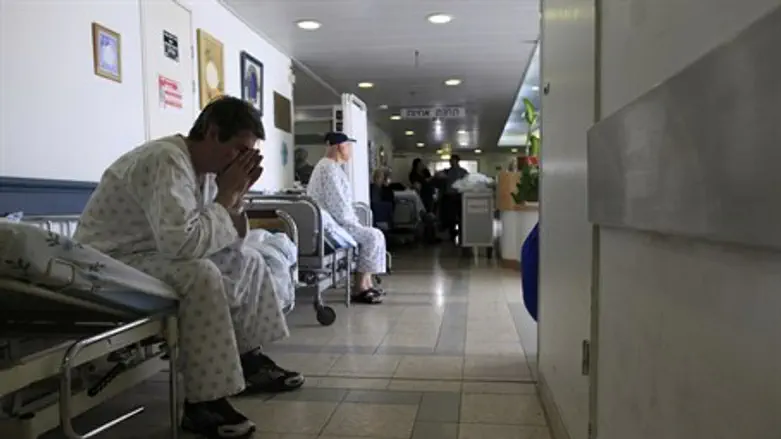
Scientists have linked obesity to a higher risk of redeveloping breast cancer after treatment, according to new data released Monday.
The study was led by researcher Dr. Joseph Sparano, associate chairman of medical oncology at the Montefiore Einstein Center for Cancer Care in New York.
The research team discovered that women whose weight met criteria for obesity at the time of diagnosis were at a 30 percent higher risk for recurrence of the cancer, and a nearly 50 percent higher risk of death, than those whose weight was normal when diagnosed.
Researchers found that the higher a woman's body mass index (BMI), the higher the risk of developing breast cancer after treatment had sent it into remission.
The type of breast cancer that was investigated in the present study was hormone receptor-positive, the most common type of breast cancer. This cancer accounts for two-thirds of all breast cancer cases worldwide.
According to the Israel Cancer Association, breakst cancer is the most common malignant disease in Israel and the Western world. Some 4,000 women are diagnosed with the disease each year, but the chances of a cure are nearly 90 percent, when detected in the early stages.
Israel has been at the forefront of treatment for breast cancer, among other forms of cancers. This summer, a Japanese surgeon began testing a medical device already used to destroy small benign breast tumors.
The FDA-approved device, made in Israel by IceCure Medical, is actually a medical probe called IceSense 3. Used under local anesthetic and in an ultrasound-guided procedure, the probe is manipulated to penetrate the tumor and then destroy it through cryoblation (engulfing it with ice). The entire procedure takes about five or ten minutes, according to CEO Hezi Himelfarb.